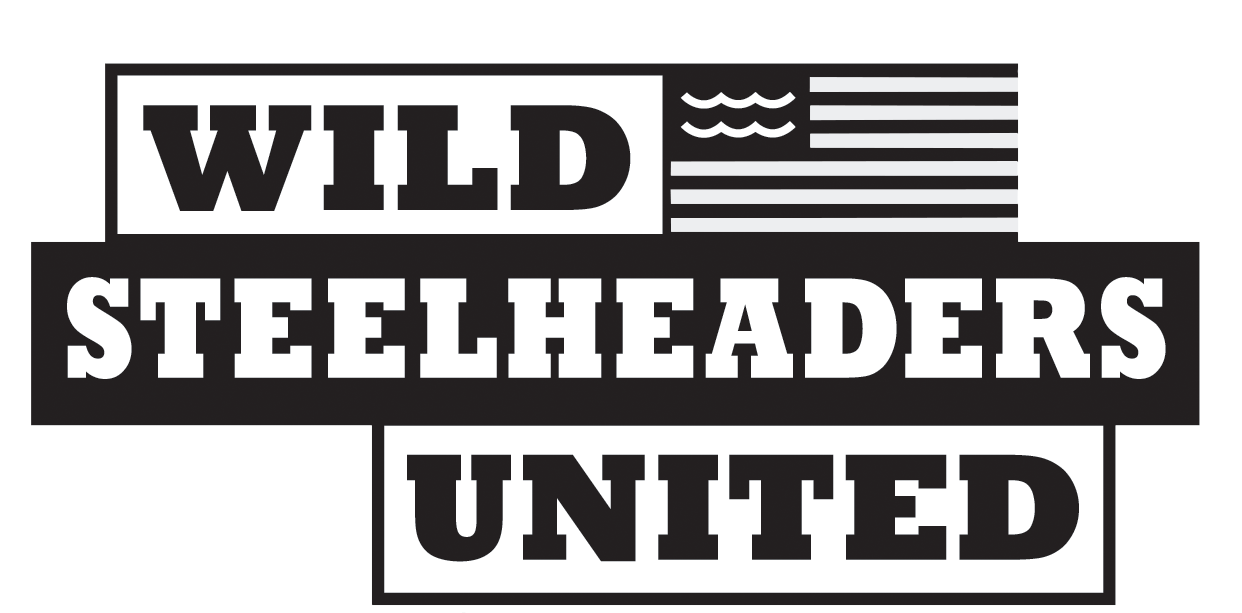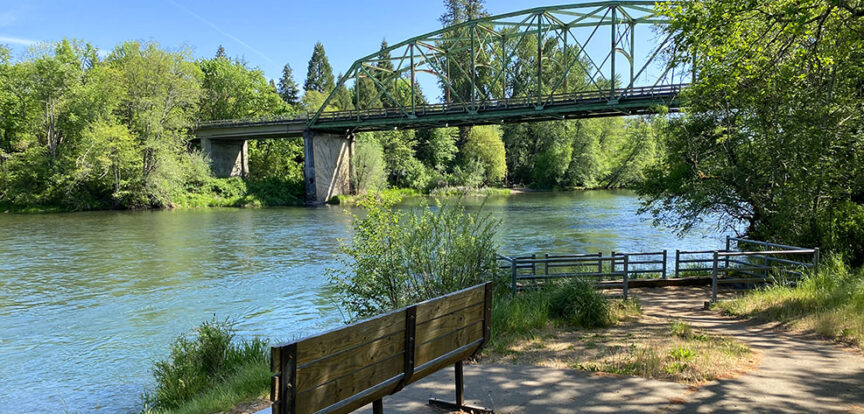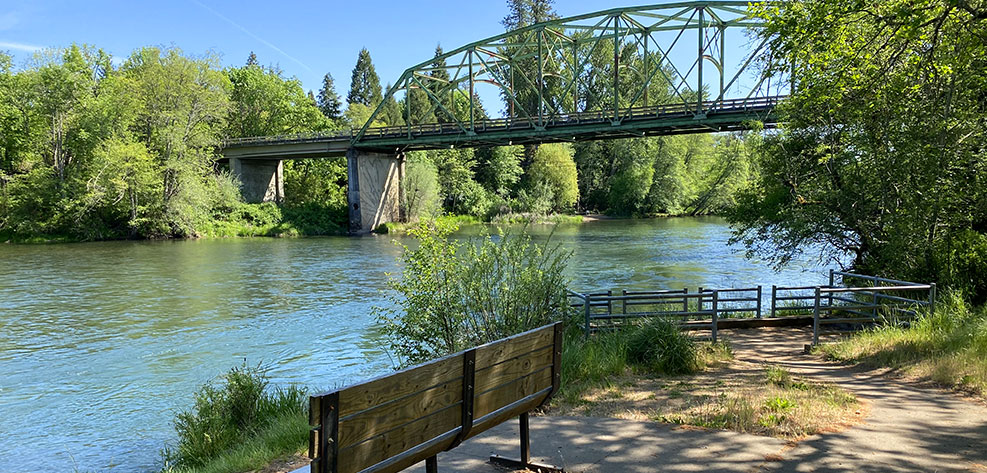
After a long process, the Oregon State Marine Board has finalized new rules
In recent years, tensions have been rising on the Upper Rogue River between motorized boaters, non-motorized boaters, state agencies, anglers, homeowners, and conservation groups. One core concern was how growing commercial jetboat tour operations in the area are affecting summer steelhead and spring Chinook salmon in the river.
Trout Unlimited is pleased to share that the Oregon State Marine Board recently approved new rules which balance the wide variety of uses and interests among stakeholders along the Upper Rogue. Last month, the Board approved a new framework that specifies seasons and reaches where commercial motorized charter boats may operate.
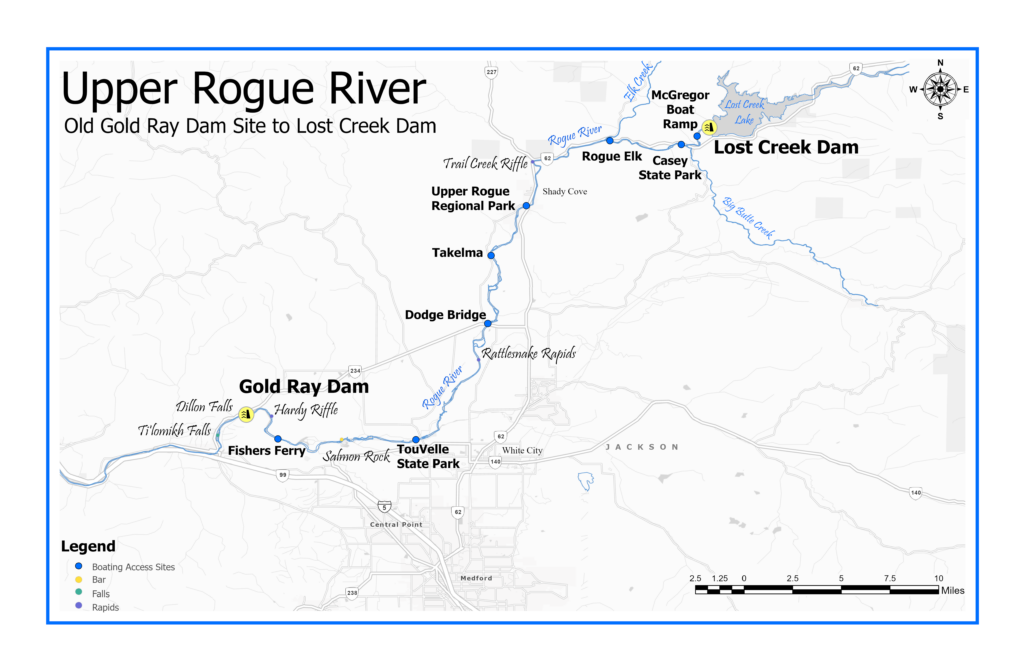
Image: Oregon Department of Fish & Wildlife.
Top: Dodge Bridge Park on the Upper Rogue River. Image: Jackson County, Oregon.
Here’s a summary of the final rules:
- In Upper Rogue tributaries entering between Fishers Ferry and Lost Creek dam: no motors exceeding 15 horsepower.
- In the mainstem Rogue upstream of Dodge Bridge Park: no motors exceeding 15 hp.
- Between Table Rock Road Bridge (TouVelle) and Dodge Bridge County Park: motors and jets exceeding 15 hp are permitted, but not charter boats (i.e., 7 or more passengers).
- Between Fishers Ferry County Park and Table Rock (TouVelle): motors and jets exceeding 15 hp are permitted, and charter boats are permitted only from May 8-September 10.
- Low Water Flow Restrictions: A low streamflow restriction for motors exceeding 15 hp applies when flows drop below a 1350 cfs average on the Dodge Bridge USGS gage.
Impacts to a South Coast Oregon Priority Water
The Upper Rogue has long been known for its amazing salmon and steelhead fisheries. It’s also a popular place to swim and recreate in kayaks, canoes, rafts and paddle boards. Over the past few years, locals have noticed increasing usage by large commercial charter boats and raised concerns about effects on spawning salmon—not to mention other river users.
In 2024, the Oregon State Marine Board kicked off a series of town halls about the issue, as a preliminary step to crafting new rules about boating in the reach. During several public meetings and comments submitted to the Marine Board throughout 2024, residents and stakeholders voiced concerns about damage to riparian habitat used by juvenile Pacific Lamprey, disturbances to spawning salmon and steelhead in the gravel spawning beds in this section, as well as the noise and bank erosion created by the large jet boats.
Additionally, members of the public expressed concerns for public safety due to the narrow, shallow river channels and interactions between recreational users and the large jet boats operating here.
Oregon Department of Fish and Wildlife (ODFW) has tracked the issue and provided helpful testimony to the Marine Board on the needs of native fish in each reach of the upper river. Importantly, ODFW also recommend a low-flow closure to motorized boating.
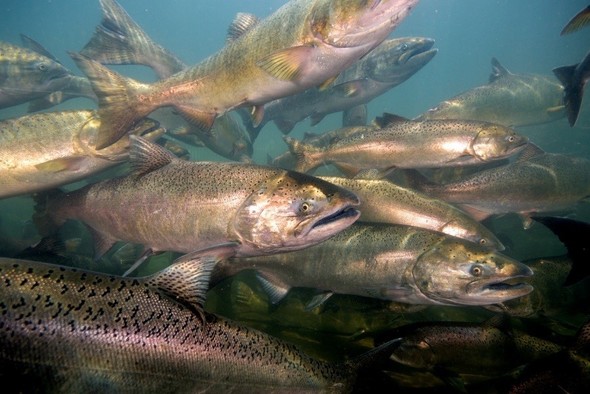
Image: ODFW
Trout Unlimited staff and volunteers engaged throughout the process. After the town hall meetings, the Marine Board opened rulemaking and conducted multiple rounds of formal public comment. TU provided in-person testimony and multiple written comments across several months, urging the Marine Board to adopt rules that would protect fish, sensitive habitats, and water quality from unrestricted motorized boating.
“TU advocates for the needs of native fish,” explained TU’s Oregon Policy Director James Fraser. “There were a lot of different user groups involved in this issue, and we focused our attention on the relatively narrow part that falls within our wheelhouse: guarding against harm to salmon and steelhead that use the upper river each summer. We’re grateful to the Marine Board and ODFW staff for teeing up this process, considering all the facts and input, and ultimately crafting rules that balance the wide variety of uses in the area.”
If you recreate on the Upper Rogue, watch for the new rules to roll-out in 2025: a safer Upper Rogue for wild steelhead and salmon awaits you.
Dean Finnerty advocates for protecting and restoring wild salmon and steelhead rivers in Southwest Oregon.
